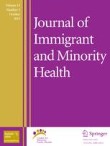
Abstract
The aim of this study was to assess the characteristics of asylum-seeking children with medical complexity visiting a tertiary care hospital in Switzerland, detailing their underlying medical conditions and management. Asylum-seeking patients with frequent visits between January 2016 and December 2017 were identified using administrative and electronic health records. Of 462 patients, 19 (4%) fulfilled the inclusion criteria with 811 (45%) visits. The age of the 19 patients ranged from 0 to 16.7 years (median of 7 years) with two main age groups identified: < 2 years and > 12 years. Nine (47%) patients originated from Syria. A total of 34/811(4%) visits were hospital admissions, 66/811 (8%) emergency department visits and 320/811(39%) outpatient department visits. In children < 2 years genetic diseases (5/8; 63%) and nutritional problems (6/8; 75%) were most common; in adolescents, orthopedic diseases (4/8; 50%) and m ental health problems (4/8; 50%). Asylum-seeking children with medical complexity represent a small but important group of patients requiring frequent medical consultations. The high proportion of young patients with genetic diseases and severe nutritional problems suggests that new strategies are required in the management of this specific group of asylum-seeking children. This could be achieved by improved co-ordination between hospital and non-hospital care exploring options for integrated care.



Δεν υπάρχουν σχόλια:
Δημοσίευση σχολίου
Σημείωση: Μόνο ένα μέλος αυτού του ιστολογίου μπορεί να αναρτήσει σχόλιο.